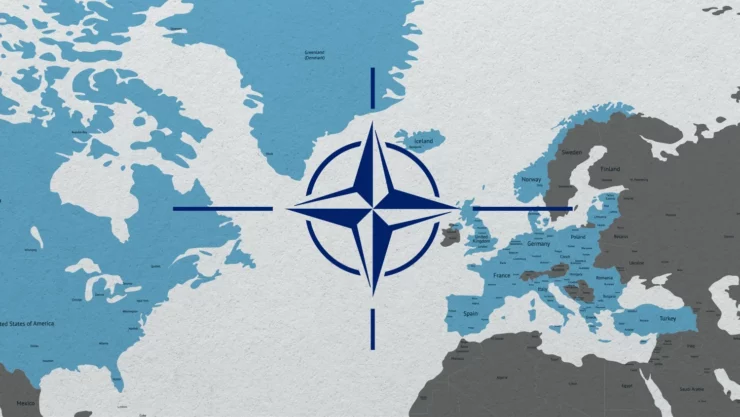
Finland’s inclusion in, and the consequent expansion of, the North Atlantic Treaty Organisation (NATO), has supposedly brought much joy to the Western world supposedly fighting Russia for the protection of democracy and human rights. The real purpose of this fight, as we already know, is to preserve the West – mainly, the US-led – dominated post-Second World War world order, which assumed the shape of unilateral US hegemony after the fall of the Soviet Union in the early 1990s. With Russia – and China – delivering the hitherto clearest shock to this unilateral hegemony of the US, the latter is doing all it can to win more and more allies to augment its position against a very formidable threat. NATO’s expansion is one of the many steps the West – again, mainly the US – has recently taken to preserve the world order. But the ongoing Russia-Ukraine (NATO) military conflict has changed the world in many significant ways. For one thing, NATO’s expansion notwithstanding, the US cannot possibly even hope to successfully “isolate” Russia globally. As far as China is concerned, the US can neither “decouple” from China without facing a heavy cost, nor will be doing so without geopolitical consequences.
More than anything else, the recent decision of the OPEC+ countries to cut their production levels – and consequently raise oil prices – shows that the world’s most powerful oil producers continue to stand with Russia. This unanimous decision is not just an economic matter. In fact, the ability of the OPEC countries to reject US pressure and follow an autonomous approach – and support Russia – shows how these countries are actually following the Russian and Chinese vision of a multipolar world where countries – or blocks – can act according to their own national interests and without compromising them to appease the US. For the US hegemony, this irresistible drift toward multipolarity is much more damaging for its future than the expansion of NATO. NATO’s expansion means the organisation now has one more country with no significant military power from within Europe as its member, but the consolidation of alternative – and counter-hegemonic – power blocks outside of Europe/NATO means a fast shrinking space across the rest of the world for the US and its allies to force advantageous foreign policy outcomes.
Now, whereas the decision to cut oil production is going to hurt the US and its allies in Europe already facing an economic crunch and a cost of living crisis, the decision also shows an acute indifference to how it will hurt the Biden administration directly both geopolitically and domestically.
Consider this: since the start of the Russia-Ukraine (NATO) conflict, the US has been selling expensive oil to Europe. In March, the US oil sales to Europe hit an all-time high. But this enhanced supply has also led to about a 50 per cent increase in prices. Now, with OPEC deciding to cut its production and raise oil prices, Washington’s European allies – and indeed consumers in the US itself – will now be buying even more expensive oil and gas, which could add to the cost of living crisis they’re already facing.
Domestically, therefore, the Biden administration’s decision to force Europe to cut back their sale of Russian oil and/or put a price cap and thus start an economic war against Russia will become even more sensitive. Politically speaking, the Biden administration’s policy to release oil regularly from the US Strategic Petroleum Reserve in attempts to micromanage the oil prices and keep them abnormally low in the interests of American consumers will become even more difficult to implement in the next few weeks.
For the Biden administration – which is jubilant over NATO’s expansion – its decreasing inability to permanently micromanage oil prices coincides with the start of what many see as Donald Trump’s aggressive presidential campaign.
There are, as such two shocks. The fact that Russia has OPEC on its side means the US and NATO have so far failed to defeat Russia in any meaningful sense at all. Joe Biden cannot claim a victory over Russia for his re-election due next year. On the other hand, Washington’s inability to influence OPEC means drastic foreign policy failure, indicating a Russian success. In geopolitical terms, the OPEC+ move came after a meeting between Russian Deputy Prime Minister Alexander Novak and Saudi Energy Minister Prince Abdulaziz bin Salman in Riyadh on March 16 that focused on oil market cooperation. Therefore, it is widely seen as the tightening of the bond between Russia and Saudi Arabia.
The failure to manage the cost of living crisis and the fact that the Biden administration has lost allies, such as Saudi Arabia, combine to become very crucial rallying points for an assertive Donald Trump, who is already framing hurdles against his come-back in terms of the Biden administration’s “conspiracy” to have him convicted and eventually arrested.
Within Europe, this oil shock will complicate domestic politics and foreign policy even further. Recent large-scale protests in France against pension reform or the widespread strikes in Britain for higher wages will become a recurrent scene. Replication of such protests across Europe could force many of the European countries to reconsider the extent of their support for the US war on Russia (and China).
The oil shock delivered by Russia and Saudi Arabia, therefore, outweighs the shock the US expected to deliver to Russia via NATO’s expansion – which is unlikely to have any effect on the ground in Ukraine, and which Russia has other means to counter.
Salman Rafi Sheikh, research-analyst of International Relations and Pakistan’s foreign and domestic affairs, exclusively for the online magazine “New Eastern Outlook.“
Сообщение NATO Expansion versus OPEC+ Oil Shock появились сначала на New Eastern Outlook.
Related posts:
Views: 0
 RSS Feed
RSS Feed

















 April 19th, 2023
April 19th, 2023  Awake Goy
Awake Goy  Posted in
Posted in  Tags:
Tags: 
















